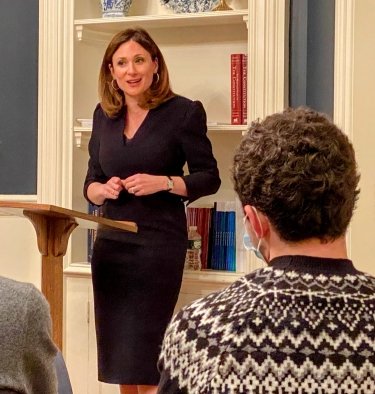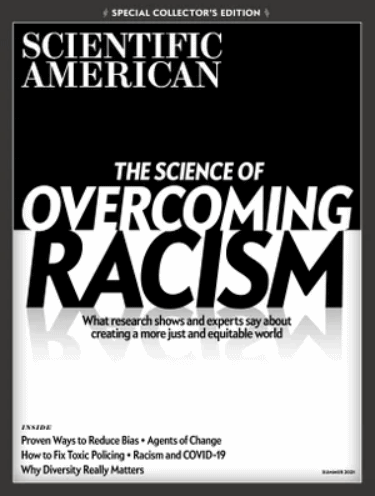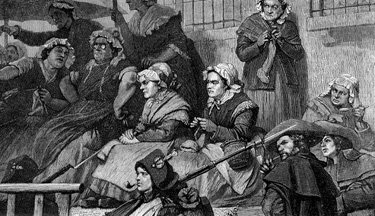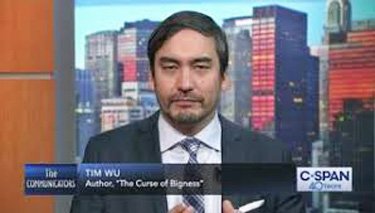Category Archive 'Left-wing Intolerance'
16 May 2022


Barack Obama epitomizes perfectly the unjustified self-regard, complacency, and arrogance of our Cliff Notes Elite.
In the Wall Street Journal, Barton Swain points out the dangerous delusion endemic within the airhead Left that leads them to imagine that they are entitled to suppress opinions contrary to their own.
One of the great ironies of American political life in the 2020s is that the people most exercised about the spread of false information are frequently peddlers of it. Their lack of self-understanding arises from the belief that the primary factor separating their side from the other side isn’t ideology, principle or moral vision but information—raw data requiring no interpretation and no argument over its importance. It is a hopelessly simpleminded worldview—no one apprehends reality without the aid of interpretive lenses. And it is a dangerous one.
The roots of this self-deceiving outlook are complicated but worth a brief look.
The animating doctrine of early-20th-century Progressivism, with its faith in the perfectibility of man, held that social ills could be corrected by means of education. People do bad things, in this view, because they don’t know any better; they harm themselves and others because they have bad information. That view is almost totally false, as a moment’s reflection on the many monstrous acts perpetrated by highly educated and well-informed criminals and tyrants should indicate. But it is an attractive doctrine for a certain kind of credentialed and self-assured rationalist. It places power, including the power to define what counts as “good” information, in the hands of people like himself.
There was also, among a host of intellectuals in the middle of the last century, the expectation of a “postpartisan” future of technocratic centrism in which the large ideological questions are mostly settled. What is mainly needed from the political process, the thinking went, isn’t visionary leadership but skillful management. Arthur M. Schlesinger Jr.’s “The Vital Center” (1949) is an expression of that outlook, as are John Kenneth Galbraith’s “The Affluent Society” (1958) and Daniel Bell’s “The End of Ideology” (1960). These writers wanted the cool control of experts, not the messy brawling of democracy, which they felt lent itself too easily to revolution. “The tendency to convert concrete issues into ideological problems, to invest them with moral color and high emotional charge,” Bell wrote, “is to invite conflicts which can only damage a society.”
The technocratic impulse is now an integral part of our politics. Those most given to it tend to view themselves not as adherents of any conception of political life but simply as people who acknowledge the world as it is. They regard differing outlooks as deviations from reality that can only cause trouble for no good reason. They believe their critics, who look at the same facts but draw different conclusions, aren’t simply mistaken but irrational, corrupt or both.
No politician deployed the rhetoric of technocratic postpartisanship more openly than Mr. Obama. In a 2007 speech to Google employees, early in his campaign for president, he expressed it concisely. “The American people at their core are a decent people,” he allowed. “There’s a generosity of spirit there, and there’s common sense there.” You could hear the “but” coming. “But,” he said, “it’s not tapped.”
He continued: “Mainly people—they’re just misinformed, or they are too busy, they’re trying to get their kids to school, they’re working, they just don’t have enough information, or they’re not professionals at sorting out all the information that’s out there, and so our political process gets skewed. But if you guys give them good information, their instincts are good and they will make good decisions. And the president has the bully pulpit to give them good information.”
The self-regard implicit in that observation is astounding. More important is its naiveté. The prevalence of bad information is nothing new. Lies, half-truths, wild exaggerations and farcical inventions are part of democratic politics and always have been. Mr. Obama’s remarks reveal a failure to understand that large, complex arguments always involve assumptions and philosophical commitments arising from background, experience and personality.
For him—and he shows no signs of change since he made those remarks 15 years ago—politics is a simple Manichaean struggle in which the righteous and well-intentioned use good data, and the malign and ignorant use bad. Mr. Obama’s most ardent admirers, accordingly—I think of the founders of the “explainer” site Vox.com—view themselves not as proponents of a particular ideological conviction but as disseminators of good data.
RTWT
15 May 2022


They don’t like the framers or the Constitution. They subscribe to the ridiculous radical leftist version of American History in which the United States was founded as a conspiracy to benefit rich White men exclusively. They oppose Free Speech and are eager to punish anyone who disagrees with them.
These are the best and the brightest, the creme of the crop, the elitest of the elite, the final product of the American system of Meritocracy, hand-picked to study at Yale Law School, the Number One, top-rated law school in the United States. These are the rising stars who will clerk for Supreme Court justices, who will be hired with six figure signing bonuses by the top law firms in the country. These are the people who will teach Constitutional Law at Harvard and Yale. These people are members of the tiny group from which one day in the future the next Supreme Court justice will be selected.
Jesus wept.
Washington Free Beacon:
It’s been a rough couple of weeks for students at Yale Law School, who are responding to news that the Supreme Court may overturn Roe v. Wade with calls to accost their conservative classmates through “unrelenting daily confrontation” and toss the Constitution by the wayside.
Members of the law school’s conservative Federalist Society, first year law student Shyamala Ramakrishna said in an Instagram post, are “conspirators in the Christo-fascist political takeover we all seem to be posting frantically about.” Why, she asked, are they still “coming to our parties” and “laughing in the library” without “unrelenting daily confrontation?”
Some of her classmates were less moderate.
“It’s not time for ‘reform,’” first-year law student Leah Fessler, a onetime New York Times freelancer, wrote on Instagram. “Democratic Institutions won’t save us.” It is unclear how Fessler will apply that view as a legal intern this summer for federal judge Lewis Liman. Judge Liman did not respond to a request for comment.
Fessler isn’t alone. “Neither the constitution nor the courts—nor the fucking illusion of ‘democracy’—are going to save us,” first-year student Melisa Olgun posted. “How can we possibly expect a document, drafted by wealthy, white, landowning men, to protect those who face marginalization that is the direct result of the very actions of the founders?”
Contacted for comment, the students decried “leaks” of their social media posts and said the Washington Free Beacon was not “authorized” to publish them.
“This was posted PRIVATELY, on a private story, and was clearly leaked to you,” Fessler said in an email, adding that the Free Beacon was “in no way authorized” to use the message.
“The post was on a private account on a private story that was sent to you without my knowledge,” Olgun said. “You are in no way authorized to use it or my name in your story.”
The replies may have been a tacit invocation of copyright laws that ban the dissemination of photos without their owner’s consent. Publishing private Instagram posts, a lawyer might argue, violates intellectual property rights, though Adam Candeub, an intellectual property expert at Michigan State University College of Law, called that argument “bullshit.”
“It’s not clear copyright would even apply,” Candeub said. “I wonder what they’re teaching at Yale Law School.”
Eugene Volokh, a professor of First Amendment law at UCLA School of Law, said the copyright argument was a stretch. Jack Balkin, a First Amendment professor at Yale Law School, did not respond to a request for comment.
The reactions at Yale Law School, long ranked the top school in the country, reflect the radicalism of a younger generation of law students—and, some have speculated, of the leaker himself—who believe that long-standing legal norms perpetuate oppression.
Olgun, for one, lamented that the “‘liberal’ legal discipline will continue to bend over backwards to uphold the decorum, norms, and the sanctity of an institution that serves only those who benefit from originalism.”
Such sentiments are widespread at Yale Law School. In March, nearly two-thirds of the student body signed an open letter condemning the Federalist Society for hosting a bipartisan panel on free speech.
RTWT
28 Apr 2022
If only Musk could buy Amazon, too.
20 Apr 2022


Duke Law School
An article in the latest Duke Law Review by a Philosophy professor dissenting from the Progressive party line on Gender has provoked the inevitable conniption fit and a rash of resignations on the part of proper-thinking members of the Millennial generation.
Kathleen Stock’s essay in the latest issue of Law and Contemporary Problems was controversial before she even wrote it. Last summer eight student editors resigned from the journal, which is published by Duke University’s law school, rather than be associated with the essay. The remaining student editors elected not to work on the issue in protest, and they voiced their objections in a note appended to the journal’s masthead. The proposed topic, along with Stock’s reputation, was enough to prompt a staff revolt.
The essay, titled “The Importance of Referring to Human Sex in Language,” is part of the journal’s “Sex in Law” special issue, which is dedicated to the “high-stakes, highly polarized” debate surrounding how sex is defined by courts and legislatures. In it, Stock, who until last fall was a professor of philosophy at the University of Sussex, in England, argues against what she calls “sex-denialism.” The core of her case is the following: “Though it is normally polite and desirable to observe the preferred descriptors and pronouns of trans people in interpersonal contexts, there are times when literal and accurate reference to actual sex is important.” Among the times she cites: medical settings, sports teams, and prisons. Stock insists that “the concept woman does vital cognitive work that simply could not be done were the concept changed to refer to gender identity or social role.”
RTWT
HT: William Laffer.
03 Apr 2022

John Hinderaker at Power-Line:
[L]ast month, a group of fascist Yale Law students successfully shouted down a Federalist Society program that featured a dialogue between a leftist and a representative of the Alliance Defending Freedom. The protest was rowdy enough that police were summoned to maintain order.
Now, more than 400 Yale Law students, representing over 60 percent of the student body, have signed a pathetically weak letter to the law school’s administration protesting the fact that law enforcement was called to keep the peace. The letter would be dumb if it came from a group of 7th graders. The fact that it comes from law students reflects the catastrophic decline of education in America.
RTWT
08 Feb 2022


Georgetown Law
Max Eden, at AEI, informs us that Georgetown Law coddles ;eft-wing students who respond to reading a comment they do not like by demanding “reparations,” “free food,” “and a place to cry”(!) by suspending a distinguished professor.
Georgetown University Law Center had long been at the bottom of the law school world’s elite “Top-14” rankings. It maintained its worst-of-the-best status largely by the draw of its physical location in Washington, D.C. It finally slipped below UCLA this year, just when Georgetown Law distinguished itself above and beyond even top-ranked Yale Law in a category not ranked by US News and World Report: leadership. To wit: Georgetown Law Dean William Treanor has proven himself, almost beyond a reasonable doubt, to be the single weakest leader in American higher education.
An examination of Treanor’s leadership by a jury of his peers should convict him of this weighty charge. Last March, someone leaked a video of professor Sandra Sellers lamenting that black students tended to score poorly on her examinations. Treanor publicly condemned her without speaking to her. Georgetown then violated its own policy and American Association of University Professors’ guidelines and fired Sellers without any due process.
I asked Treanor: Why condemn Sellers before speaking with her? Was there an empirical basis for her lamentation? If there was, then why would he find lamenting an empirical truth to be “abhorrent?” I also asked him to comment on what a Georgetown Law student told me: “[B]ecause of [Treanor’s] action, [students] are now terrified of providing any personal opinion or even putting forward ideas ‘for the sake of argument’ in [Georgetown Law] classes for fear that someone might clip their speech and post a video on social media to destroy their reputation and career.”
Treanor provided no comment. He did, however, publicly vow to consider requiring all students to study Critical Race Theory (CRT), to make professor tenure contingent on CRT-inspired “diversity, equity and inclusion” criteria, and insisted that he was “dedicated to the important work that lies ahead.”
In recent weeks, Treanor has rededicated himself to that work. Read the rest of this entry »
11 Dec 2021


Abigail Schrier, famed for having her book on the impact of the fashion for Transgenderism on children, Irreversible Damage, banned by Amazon, recently delivered a brave and inspiring talk to the undergraduates at Priceton.
Every dating app pushes us toward the same few attractive mate choices; Spotify presses us to like the same music; Amazon pushes us to purchase specific books and away from others. If you’re under the impression that the books Amazon recommends to you are based solely on a content-neutral algorithm, I can disabuse you of that fiction right now. I once asked one of my sources at Amazon, who was concerned about the ways the search results were being manipulated, whether he’d ever seen a book deliberately boosted. Yes, he said. Becoming by Michelle Obama. When that book came out – he told me – virtually every search you did led to the recommendation to buy the former First Lady’s book. And the opposite is also true. There are books that are never recommended by the Amazon algorithm, irrespective of how well they’ve sold or how likely a specific shopper is to buy them. Or, at least, there’s one such book. I’ll let you try and guess what it is.
But the larger point is, your will is being toyed with, subverted, manipulated. And in a fairly insidious manner. None of you will be shocked to hear that Google promotes certain search results in order to lead us to a certain perspective. But did you know that, for contested entries, Wikipedia assigns editors, some of whom are ideologically committed activists, many of whom have very particular views they want you to walk away with.
If you form views based on those Wikipedia articles or reports by corrupt fact-checkers, if you act based on them, are you exercising freedom of will? Given that you’ve been spun and prodded along to a pre-determined conclusion by hidden persuaders, perhaps you aren’t. Perhaps you’re left in the same sorry state as the Moor of Venice: toyed with, subverted, manipulated. Acting out someone else’s plan, pointed in the direction that he wants you to walk.
We’ve spent a lot of time in the past few years debating whether this kind of manipulation is at the root of our political divisions, but I don’t think we’ve paid enough attention to an even more basic question: how it has interfered with freedom of conscience and ultimately free will.
When polled, nearly two out of three Americans (62%) say they are afraid to express an unpopular opinion. That doesn’t sound like a free people in a free country. We are, each day, force-fed falsehoods we are all expected to take seriously, on pain of forfeiting esteem and professional opportunity:
“Some men have periods and get pregnant.” “Hard work and objectivity are hallmarks of whiteness.” “Only a child knows her own true gender.” “Transwomen don’t have an unfair advantage when playing girls’ sports.”
…
I know why students keep their heads down. They are hoping for that Goldman or New York Times internship, which they don’t want to put in jeopardy. Well, any institution that takes our brightest, most capable young people—Princeton graduates!—and tells you can only work here if you think like we tell you to and keep your mouth shut, that isn’t really Goldman Sachs and it isn’t the paper of record. It’s the husk of a once-great institution, and it’s not worth grasping for. Talk to alums at these institutions: they sound like those living under communist regimes. That’s the America that awaits you if you will not speak up.
You who are studying at one of the greatest academic institutions in the country only to be told that after graduation, you must think as we tell you and recite from this script—why were you born? What’s the point of being alive? Computers are vastly better at number crunching. They’ll soon be better at all kinds of more complex tasks. What they cannot do is stand on principle. What a computer cannot do is refuse to lend credibility to a rigged competition—to refuse to strengthen its coercion—making it that much harder for the next female athlete to speak up. What the computer cannot know is the glorious exertion of the human will when it refuses to truckle in the face of lies and instead publicly speaks the truth.
RTWT
06 Dec 2021


I quit reading Scientific American decades ago. The Gramscian Long March Through the Institutions included that venerable and formerly much respected serial that far back.
Things apparently. however, can always get worse.
Michael Schermer is now another journalist of distinction who has been canned for insufficient fidelity to the radical left’s party line, reduced (like Matt Taibbi and Andrew Sullivan) to samizdat publishing, and rattling a contribution can, on Substack.
“In April of 2001 I began my monthly ‘Skeptic’ column at ‘Scientific American’, the longest continuously published magazine in the country dating back to 1845. With Stephen Jay Gould as my role model (and subsequent friend), it was my dream to match his 300 consecutive columns that he achieved at ‘Natural History’ magazine, which would have taken me to April, 2026. Alas, my streak ended in January of 2019 after a run of 214 essays.
“Since then, I have received many queries about why my column ended and, more generally, about what has happened over at ‘Scientific American’, which historically focused primarily on science, technology, engineering and medicine (STEM), but now appears to be turning to social justice issues. There is, for example, the August 12, 2021 article on how ‘Modern Mathematics Confronts its White Patriarchal Past,’ which asserts prima facie that the reason there are so few women and blacks in academic mathematics is because of misogyny and racism. …
“Then there is the July 5, 2021 ‘Scientific American’ article that ‘Denial of Evolution Is a Form of White Supremacy.’ Because we are all from Africa and thus black, the author Allison Hopper avers, evolution deniers (AKA creationists) are ipso facto white supremacists. …
The most bizarre example of ‘Scientific American’’s woke turn toward social justice is an article published September 23, 2021 titled ‘Why the Term ‘JEDI’ is Problematic for Describing Programs that Promote Justice, Equity, Diversity and Inclusion.’ The JEDI acronym is clearly meant to be uplifting and positive. It isn’t, opine the authors of this piece that is clearly not in the satirical spirit of ‘The Onion’ or ‘Babylon Bee’.” …
My.. December 2018 [column] was rejected entirely.
I’m afraid I’m going to have to reject your December column. It’s not really well argued, and leaves a couple of enormous holes that any critic could drive a large truck through.
You say, essentially, that things are better, especially for minorities of various kinds, than ever in history, your evidence being, basically, “you can look it up.” It may be true in a relative sense—there are fewer lynchings these days, and a man generally can’t beat his wife to death and get away with it as easily as he once could—but you ignore the question of where these and other historically powerless groups stand in relation to those with hereditary privilege. “Driving while black” is still a thing, as is getting shot by cops for failure to be abjectly respectful enough, as is casual, thoughtless racism. Income inequality is larger than it’s been in a long time, which also impacts minorities vastly more than it does privileged groups. Women still suffer constant indignities and violence at the hands of men. And worldwide, fascist and authoritarian regimes are on the increase. …
I’m not looking for a revise here; we need a new column.
Shortly after the December 2018 column I was given my walking papers.
RTWT
04 Dec 2021


Today’s universities are full of Tricoteuses.
Noah Karl contends that the Woke cultural shift that has swept through the Community of Fashion in recent years can be traced to the Civil Rights Movement and to the massive leftward shift of Academia.
The Professoriate used to be conventionally Liberal. Today it is conventionally Radical. One key reason for that shift is the dramatic increase of female academics.
I suspect that most of academia’s leftward shift was due to self-reinforcing processes: social homophily (conservatives not wanting to enter a profession where there aren’t many conservatives); political typing (conservatives feeling that an academic career “isn’t for them” in the same way that some women feel that a construction career “isn’t for them”); and discrimination (conservatives being discriminated against in hiring, research and funding).
However, one other possible cause of academia’s leftward shift, and of the rise of woke activism in particular, is the influx of women into that institution. …
[W]hy would the influx of women into academia have contributed to its leftward shift, and to the rise of woke activism in particular? As the psychologist Cory Clark notes, women are consistently less supportive of free speech than men, and consistently more supportive of censorship. Compared to men, they’re more likely to say: that hate speech is violence; that it’s acceptable to shout down a speaker; that controversial scientific findings should be censored; that people need to be more careful about the language they use; and that it should be illegal to say offensive things about minorities.
Clark argues, convincingly in my view, that this stems from women’s greater aversion to harm and conflict. They interpret various forms of speech as harmful to vulnerable groups, and wish to censor them for that reason. Whether these gender differences are cross-cultural universals remains a matter of debate. Women being more averse to harm and conflict would certainly make sense from an evolutionary point of view, but that doesn’t necessarily mean the differences are hard-wired. As with most traits that vary, I suspect there’s both a genetic and an environmental component. Whatever the precise mix, women’s greater aversion to harm and conflict does show up in many WEIRD countries, not least the United States.
Clark isn’t the only scholar to have noticed that women’s aversion to harm and conflict has profound implications for academia. Drawing on the work of psychologist Joyce Benenson, Arnold Kling notes: “Women have a social strategy that works well for protecting their individual health and the health of their children: emphasize safety, covertly undermine the status of unrelated females, and exclude rivals rather than reconcile with them.” This leads him to speculate that adding a lot of women to formerly male domains has made the culture of those domains more consistent with female tendencies. “The older culture valued open debate,” Kling notes. “The newer culture seeks to curtail speech it regards as dangerous.”
We know that, on average, women are less favourable to free speech and more favourable to censorship.
RTWT
13 Oct 2021


Yale Law School
The Washington Free Beacon has absolutely appalling news from Yale.
Administrators at Yale Law School spent weeks pressuring a student to apologize for a “triggering” email in which he referred to his apartment as a “trap house,” a slang term for a place where people buy drugs. Part of what made the email “triggering,” the administrators told the student, was his membership in a conservative organization.
The second-year law student, a member of both the Native American Law Students Association and the conservative Federalist Society, had invited classmates to an event cohosted by the two groups. “We will be christening our very own (soon to be) world-renowned NALSA Trap House … by throwing a Constitution Day Bash in collaboration with FedSoc,” he wrote in a Sept. 15 email to the Native American listserv. In keeping with the theme, he said, the mixer would serve “American-themed snacks” like “Popeye’s chicken” and “apple pie.”…
Within minutes, the lighthearted invite had been screenshotted and shared to an online forum for all second-year law students, several of whom alleged that the term “trap house” indicated a blackface party.
“I guess celebrating whiteness wasn’t enough,” the president of the Black Law Students Association wrote in the forum. “Y’all had to upgrade to cosplay/black face.” She also objected to the mixer’s affiliation with the Federalist Society, which she said “has historically supported anti-Black rhetoric.”
“Trap house” has been a term used in progressive pop culture since at least 2016, when the socialist podcast “Chapo Trap House” burst onto the scene. Hosted by three white men, the podcast has received sympathetic profiles in the New York Times, the New Yorker, and the Guardian, none of which suggest that there is anything racial about its name. Once associated with inner city crack dens, “trap house” has also become generic slang for any place where young people can score beer. …
Just 12 hours after the email went out, the student was summoned to the law school’s Office of Student Affairs, which administrators said had received nine discrimination and harassment complaints about his message.
At a Sept. 16 meeting, which the student recorded and shared with the Washington Free Beacon, associate dean Ellen Cosgrove and diversity director Yaseen Eldik told the student that the word “trap” connotes crack use, hip hop, and blackface. Those “triggering associations,” Eldik said, were “compounded by the fried chicken reference,” which “is often used to undermine arguments that structural and systemic racism has contributed to racial health disparities in the U.S.”
Eldik, a former Obama White House official, went on to say that the student’s membership in the Federalist Society had “triggered” his peers.
“The email’s association with FedSoc was very triggering for students who already feel like FedSoc belongs to political affiliations that are oppressive to certain communities,” Eldik said. “That of course obviously includes the LGBTQIA community and black communities and immigrant communities.”
The statement signals that administrators at the country’s top-ranked law school now regard membership in mainstream conservative circles as a legitimate object of offense—and as potential grounds for discipline. The Federalist Society, founded by Yale Law students in 1982, has spread nationwide over the past four decades and become one of most influential legal groups in the country. Members include all six conservative justices on the Supreme Court, as well as the late Antonin Scalia, who spoke at the society’s inaugural conference.
RTWT
HT: Glenn Reynolds.
The Civil Rights Movement of the last century has metastasized into an aggressive form of totalitarianism bent on eliminating freedom of association, freedom of speech, and freedom of thought. The current Woke regime makes Jim Crow look positively benign.
27 Apr 2021


WSJ reports:
An employee petition at Simon & Schuster demanding that the company stop publishing authors associated with the Trump administration collected 216 internal signatures and several thousand outside supporters, including well-known Black writers.
The employees submitted the petition Monday to senior executives at the publishing house, according to the company and a person involved in the employee effort. The petition demands that the company refrain from publishing a memoir by former Vice President Mike Pence. The letter asks Simon & Schuster not to treat “the Trump administration as a ‘normal’ chapter in American history.”
Simon & Schuster Chief Executive Jonathan Karp sent an internal letter last week rejecting the employee demands, when the company was aware the petition was circulating.
It has now been formally submitted. A spokesman for Simon & Schuster on Monday declined to comment.
The 216 employees who signed the petition represent about 14% of Simon & Schuster’s workforce. Among the more than 3,500 outside supporters, according to a letter accompanying the petition, were writers of color including Jesmyn Ward, a two-time winner of the National Book Award for fiction. A representative for Ms. Ward confirmed that she had signed the petition.
The petition and letter were sent to Mr. Karp and Dana Canedy, publisher of Simon & Schuster’s flagship imprint.
The petition accused Mr. Pence of advocating for policies that were racist, sexist and discriminatory toward LGBT people, among other criticisms of his tenure as a public official. The petition also calls on Simon & Schuster to cut off a distribution relationship with Post Hill Press, a publisher of conservative books as well as business and pop culture titles.
A spokesman for Mr. Pence declined to comment. Post Hill Press publisher Anthony Ziccardi said, “We’re proud of our publishing program, that’s what we’re focused on.”
The employee pushback against Mr. Pence’s book underscores the challenges publishers face in releasing politically sensitive books that are commercially attractive. Major publishers generally want to give a platform to authors with a range of viewpoints, but don’t want to alienate portions of their workforce or customer base.
Simon & Schuster is one of the leading publishers of political books. In 2020, it published titles ranging from Fox News host Sean Hannity’s “Live Free or Die” to former national security adviser John Bolton’s “The Room Where It Happened: A White House Memoir.”
In rejecting the group’s demands, Mr. Karp last week said in his internal letter that Simon & Schuster’s core mission includes publishing “a diversity of voices and perspectives.”
RTWT
Simon & Schuster ought to fire every one of those little Nazis.
23 Mar 2021


Timothy Shiou-Ming Wu 吴修铭
Matt Taibbi has bad news for Americans who still care about Free Speech and the open exchange of opinions.
When Columbia law professor Timothy Wu was appointed by Joe Biden to the National Economic Council a few weeks back, the press hailed it as great news for progressives. The author of The Curse of Bigness: Antitrust in the New Gilded Age is known as a staunch advocate of antitrust enforcement, and Biden’s choice of him, along with the appointment of Lina Khan to the Federal Trade Commission, was widely seen as a signal that the new administration was assembling what Wired called an “antitrust all-star team.”
“Big Tech critic Tim Wu joins Biden administration to work on competition policy,” boomed CNBC, while Marketwatch added, “Anti-Big Tech crusader reportedly poised to join Biden White House.” Chicago law professor Eric Posner’s piece for Project Syndicate was titled “Antitrust is Back in America.” Posner noted Wu’s appointment comes as Senator Amy Klobuchar has introduced regulatory legislation that ostensibly targets companies like Facebook and Google, which a House committee last year concluded have accrued “monopoly power.”
Wu’s appointment may presage tougher enforcement of tech firms. However, he has other passions that got less ink. Specifically, Wu — who introduced the concept of “net neutrality” and once explained it to Stephen Colbert on a roller coaster — is among the intellectual leaders of a growing movement in Democratic circles to scale back the First Amendment. He wrote an influential September, 2017 article called “Is the First Amendment Obsolete?” that argues traditional speech freedoms need to be rethought in the Internet/Trump era. …
Listening to Wu… is confusing. He calls himself a “devotee” of the great Louis Brandeis, speaking with reverence about his ideas and those of other famed judicial speech champions like Learned Hand and Oliver Wendell Holmes. In the Aspen speech above, he went so far as to say about First Amendment protections that “these old opinions are so great, it’s like watching The Godfather, you can’t imagine anything could be better.”
If you hear a “but…” coming in his rhetoric, you guessed right. He does imagine something better. The Cliff’s Notes version of Wu’s thesis:
— The framers wrote the Bill of Rights in an atmosphere where speech was expensive and rare. The Internet made speech cheap, and human attention rare. Speech-hostile societies like Russia and China have already shown how to capitalize on this “cheap speech” era, eschewing censorship and bans in favor of “flooding” the Internet with pro-government propaganda.
— As a result, those who place faith in the First Amendment to solve speech dilemmas should “admit defeat” and imagine new solutions for repelling foreign propaganda, fake news, and other problems. “In some cases,” Wu writes, “this could mean that the First Amendment must broaden its own reach to encompass new techniques of speech control.” What might that look like? He writes, without irony: “I think the elected branches should be allowed, within reasonable limits, to try returning the country to the kind of media environment that prevailed in the 1950s.”
— More ominously, Wu suggests that in modern times, the government may be more of a bystander to a problem in which private platforms play the largest roles. Therefore, a potential solution (emphasis mine) “boils down to asking whether these platforms should adopt (or be forced to adopt) norms and policies traditionally associated with twentieth-century journalism.”
That last line is what should make speech advocates worry.
RTWT
The kind of media environment favored by Wu (and other radical leftists) “that prevailed in the 1950s” is a regulated monopoly of three network sources all in complete agreement on the Overton Window, the range of acceptable political discourse, i.e. No Rush Limbaugh, no Fox News, no right-wing blogs.
Your are browsing
the Archives of Never Yet Melted in the 'Left-wing Intolerance' Category.
/div>

Feeds
|














